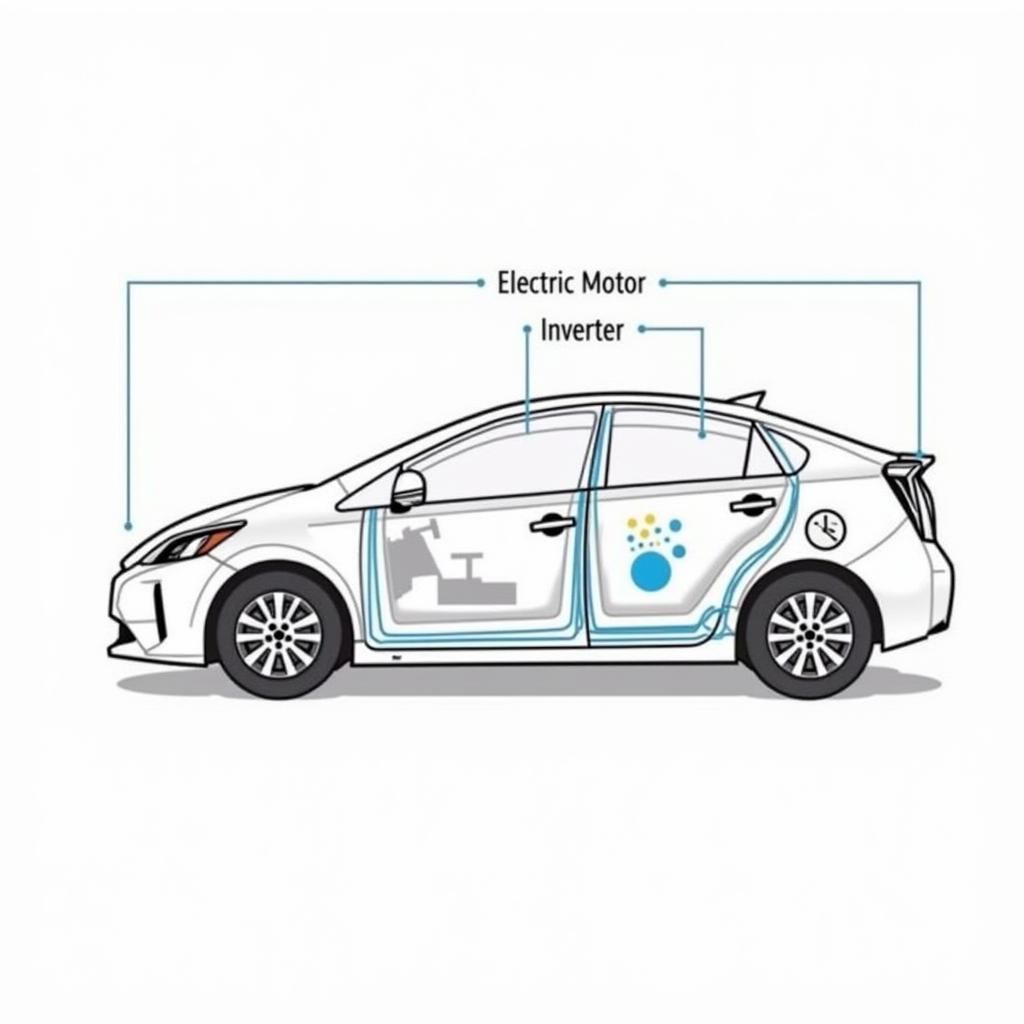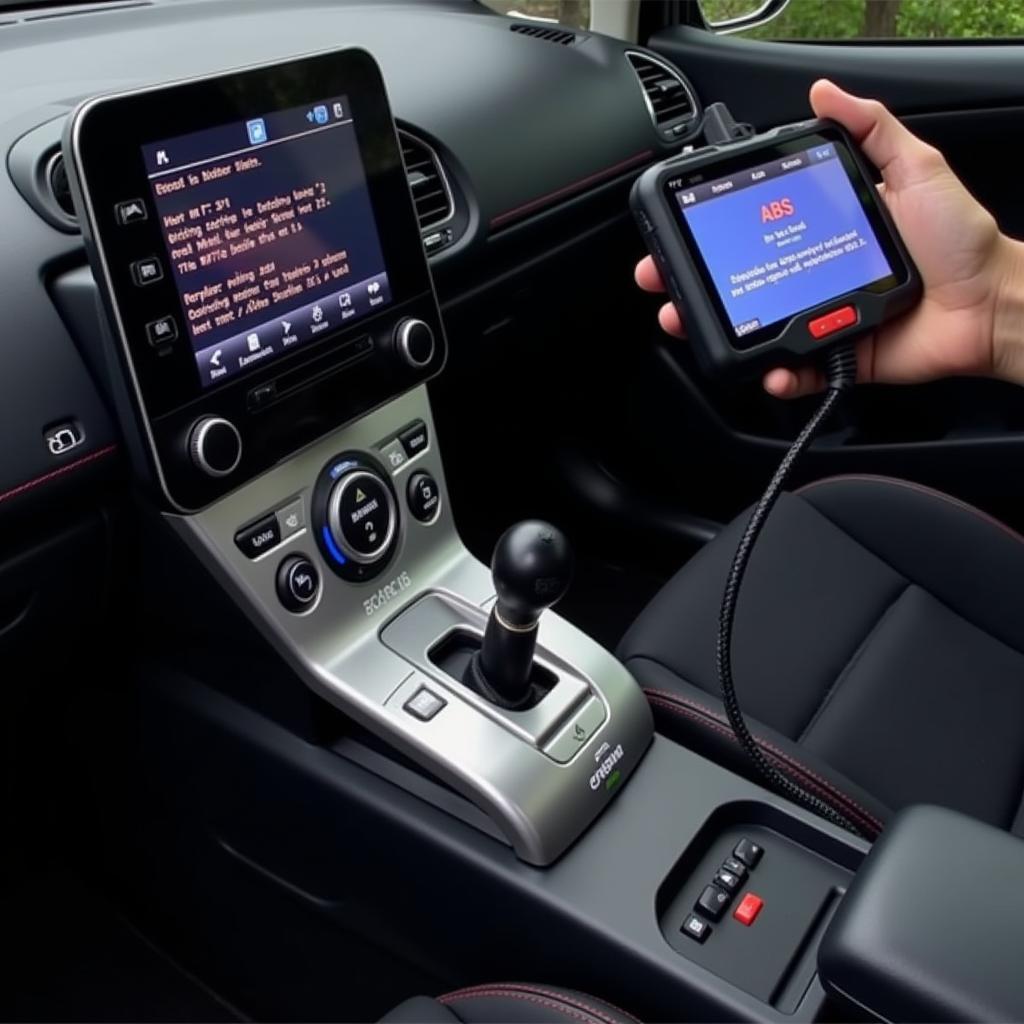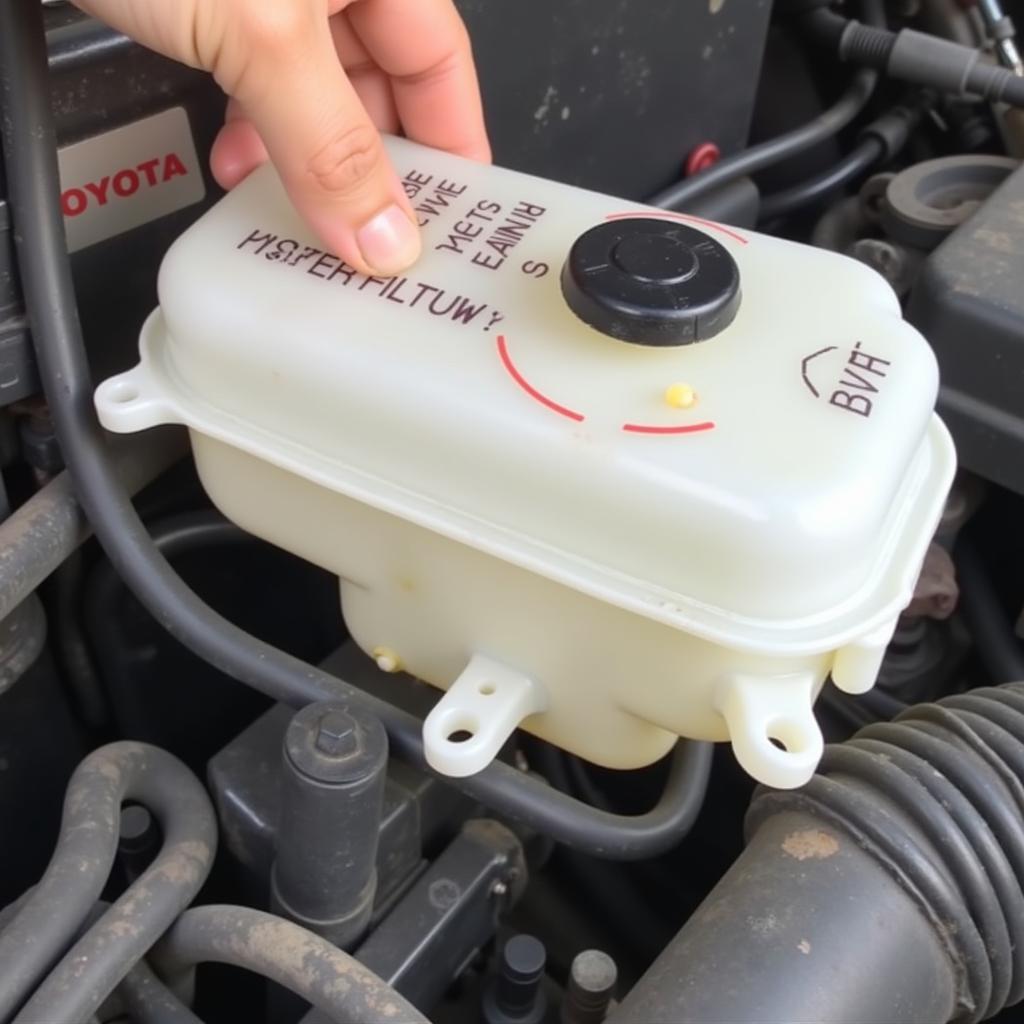The dreaded illumination of both the brake and ABS warning lights on your Toyota Prius dashboard can induce anxiety in even the most seasoned driver. These lights serve as your car’s way of signaling a potential issue within your braking system, a system you rely on heavily for safety. While a trip to the mechanic might be your first instinct, understanding the common causes and potential solutions can empower you to address the issue.
Understanding Your Prius’s Braking System
Before diving into the causes and solutions, it’s helpful to have a basic understanding of how the Prius’s brake system, particularly the regenerative braking system intertwined with ABS, functions:
- Regenerative Braking: Unique to hybrid vehicles like the Prius, this system captures energy typically lost during braking and uses it to recharge the hybrid battery.
- Anti-lock Braking System (ABS): This system prevents wheel lockup during hard braking, allowing you to maintain steering control.
 Prius Regenerative Braking System
Prius Regenerative Braking System
Common Causes of Brake and ABS Warning Lights on a Prius
Several culprits could be triggering the brake and ABS warning lights on your Prius:
- Low Brake Fluid: One of the most common and easily fixable causes.
- Faulty ABS Sensors: These sensors monitor wheel speed and can trigger the warning lights if malfunctioning.
- Worn Brake Pads: Excessively worn brake pads can also trigger the warning lights.
- Malfunctioning ABS Module: The ABS module is the brain of the system and, if faulty, can cause various issues.
- Faulty Brake Light Switch: A broken switch can disrupt signals within the braking system.
Diagnosing the Problem
Pinpointing the exact cause often requires some investigative work. Here’s a step-by-step guide:
- Check Your Brake Fluid: Park on a level surface, open the hood, and locate the brake fluid reservoir. If the fluid level is low, add the recommended brake fluid type.
- Inspect Your Brake Pads: If your brake pads are visibly thin or you hear a grinding noise when braking, it’s time for a replacement.
- Scan for Diagnostic Trouble Codes (DTCs): Using an OBD-II scanner, a valuable tool for car owners, you can read any stored codes related to the brake and ABS system, giving you a clearer picture of the problem.
 OBD-II Scanner Diagnosing Prius
OBD-II Scanner Diagnosing Prius
When to Seek Professional Help
While checking brake fluid and inspecting brake pads can be DIY tasks, more complex issues like faulty sensors or a malfunctioning ABS module often necessitate professional expertise. Remember, safety is paramount when it comes to brakes.
“Ignoring brake warning lights is like ignoring a flashing ‘check engine’ light – you might be inviting bigger problems down the road,” cautions John Miller, a seasoned automotive electrician with over 20 years of experience. “It’s always best to err on the side of caution when it comes to your brakes.”
Remote Diagnostic and Programming Solutions
Advancements in automotive technology have paved the way for remote solutions. CARDIAGTECH, for instance, offers remote diagnostic and programming services. This means a qualified technician can remotely access your vehicle’s computer system to:
- Diagnose the root cause of the issue.
- Perform software updates.
- Clear error codes.
This innovative approach offers convenience and efficiency, especially for software-related issues.
2001 prius abs brake warning light
Preventing Future Brake Issues
Prevention is always better than cure. Here are some tips to keep your Prius’s braking system in top shape:
- Regular Brake Inspections: Have your brakes inspected annually or every 15,000 miles.
- Timely Brake Pad Replacements: Don’t wait until you hear grinding noises to replace worn brake pads.
- Quality Brake Fluid: Use high-quality brake fluid and ensure it’s changed according to your Prius’s maintenance schedule.
toyota prius brake warning light
Conclusion
The brake and ABS warning lights in your Toyota Prius should never be ignored. While simple fixes like topping off brake fluid can sometimes resolve the issue, more complex problems may require professional intervention. Remember, proactive maintenance and timely repairs ensure your safety on the road.

